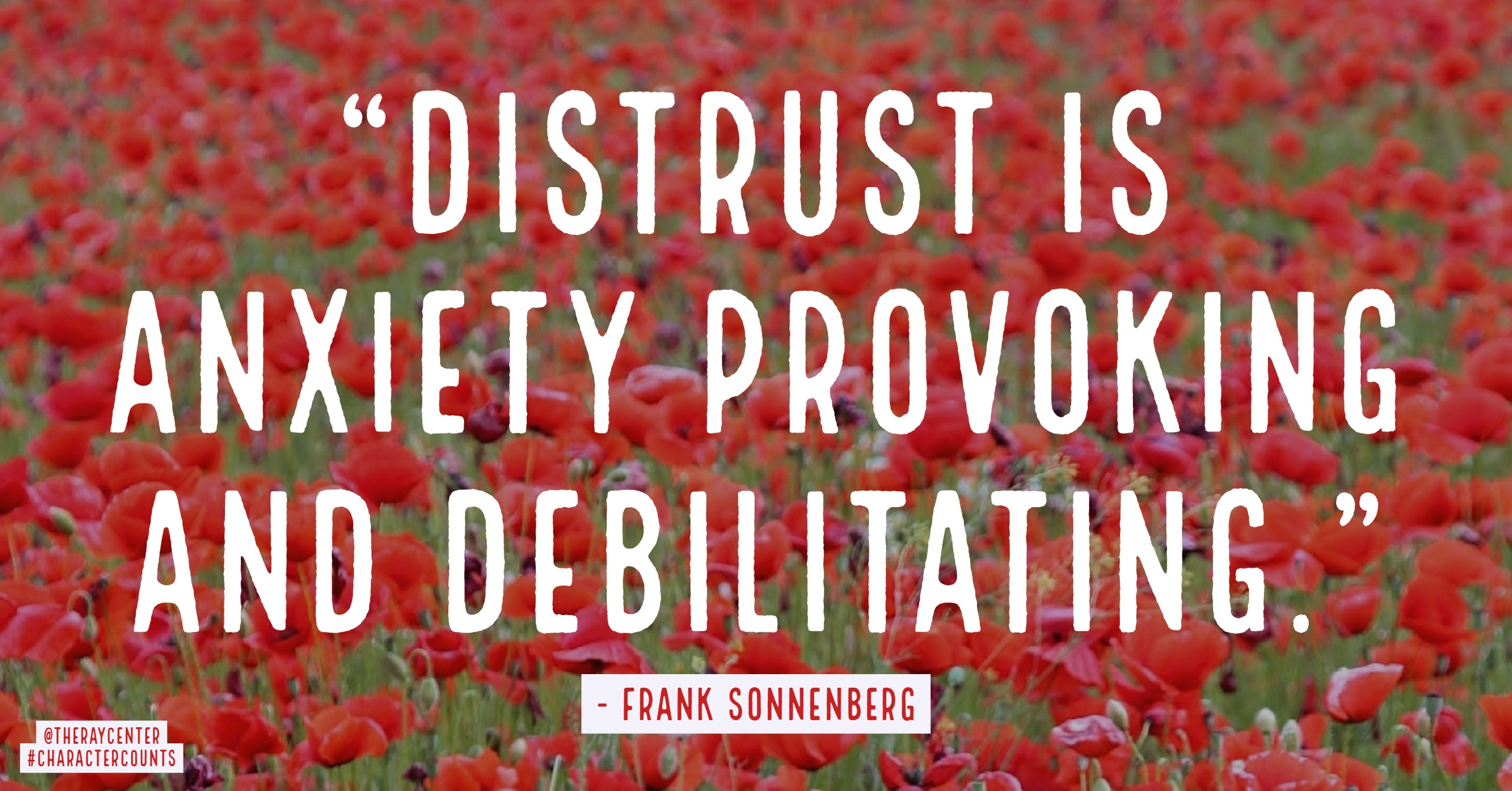Distrust commands a heavy price

From our guest contributor, Frank Sonnenberg.
People like talking about trust. So, why doesn’t trust receive the priority that it rightly deserves? In some cases, people are short-term thinkers. They’ll do anything to get what they want and aren’t willing to make the long-term commitment. Others conclude that it’s hard to measure the impact that our words and actions have on trust –– so why pay the price? Let’s look at what happens in the absence of trust.
The Cost of Distrust
In the relationships between people and groups, a lack of trust:
- Creates a distraction. Distrust causes people to lose sight of what’s important and become sidetracked by trivial matters.
- Damages relationships. Distrust promotes disharmony and uncertainty. It causes people to scrutinize what others say and second-guess their intent.
- Destroys communication. Distrust fosters dishonesty and lack of transparency. People spend more effort reading between the lines than listening to what’s being said.
- Damages teamwork. Distrust creates dissension. It pits people against one another. You can expect finger pointing, the blame game, and witch-hunts to thrive where there is distrust.
- Reduces competitiveness. When there’s distrust, people spend more time answering to the “paperwork police” than doing their job. This increases costs, but rarely adds value to the product or the customer experience.
- Encourages game playing. Distrust encourages people to spend more time trying to beat the system rather than trying to do something meaningful.
- Destroys individual initiative. Distrust encourages people to look busy rather than to actually be productive.
- Creates a toxic environment. Distrust creates an atmosphere that can be cut with a knife. In these environments, people opt for the political solution rather than for doing what’s right.
- Hurts loyalty and morale. Distrust is anxiety provoking and debilitating. Good people would rather leave an organization for greener pastures than spend their days covering their behind.
There is a tendency to believe that if something cannot be seen or heard, it does not exist. It brings to mind the question: If a tree falls in the forest and no one is there to hear it, does it make a sound? Trust, as with other soft issues, is like the tree that falls in a forest. If we don’t believe that trust makes a sound, maybe it’s time to get our hearing checked.
 Frank is an award-winning author. He has written five books and over 300 articles. Frank was recently named one of “America’s Top 100 Thought Leaders” and nominated as one of “America’s Most Influential Small Business Experts.” Frank has served on several boards and has consulted to some of the largest and most respected companies in the world. Additionally, FrankSonnenbergOnline was named among the “Best 21st Century Leadership Blogs” and among the “Top 100 Socially-Shared Leadership Blogs.” Frank’s new book, Follow Your Conscience, was released November 2014. © 2016 Frank Sonnenberg. All rights reserved.
Frank is an award-winning author. He has written five books and over 300 articles. Frank was recently named one of “America’s Top 100 Thought Leaders” and nominated as one of “America’s Most Influential Small Business Experts.” Frank has served on several boards and has consulted to some of the largest and most respected companies in the world. Additionally, FrankSonnenbergOnline was named among the “Best 21st Century Leadership Blogs” and among the “Top 100 Socially-Shared Leadership Blogs.” Frank’s new book, Follow Your Conscience, was released November 2014. © 2016 Frank Sonnenberg. All rights reserved.